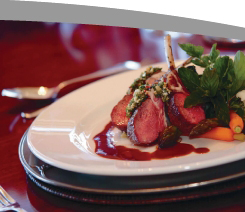

Arrival Information
Integrated Marine Group have assisted many visiting Yachts and Superyachts with the arrival process in New Zealand over the years. The Customs and Biosecurity Officers that attend the vessel on arrival are some of the friendliest you will come across, but there are some strict rules you must adhere to. IMG can advise on all of these prior to your arrival, meaning that a potentially lenghty clearance process should take as little as half an hour. Ask us to send through our factsheets along with the forms.
Customs
An Advanced Notification of Arrival must be submitted to customs as least 48 hours prior to the vessels arrival in New Zealand territorial waters (12 nautical miles off the coast). In general it is best to give Customs as much notice as possible. With this form simply complete the top section and attach a crew list.
You will also need to complete an Inward Report. This should again be submitted to customs at least 48 hours prior to arrival. Integrated Marine Group are happy to provide the forms and lodge your arrival documents.
Ports of Entry in New Zealand
There are a variety of ports where you can 'clear in'. These include:
North Island
Auckland, Gisborne, Napier, New Plymouth, Opua, Tauranga, Wellington, Whangarei
South Island
Bluff, Dunedin, Fiordland - Milford Sound, Lyttelton, Nelson, Picton, Port Chalmers, Timaru
The most popular Ports of Entry tend to be Auckand and Opua in the Bay of Islands.
Firearms
Please note that the importation of firearms is strictly controlled in New Zealand. All firearms must be declared to the Customs Officer on arrival in New Zealand. They will be detained and placed in safe keeping by the Police who will hold them until your departure.
Harbour Control
When you are in New Zealand waters contact the relevant Harbour Authority via the VHF. If you are clearing into Auckland, for example, you should contact Auckland Harbour Control on VHF Ch 16/12. You will be advised on the procedure for entering the harbour; boats over 40M in length may require a pilot. You will be directed to the appropriate berth, where Customs, Immigration and MPI (Ministry for Primary Industries or Biosecurity) will visit you for inspection.
Immigration
Each member of the crew will be required to complete a New Zealand Passenger Arrival Card, which can be despatched to you in your last port of call. Visitors visas will then be issued to the crew by the Immigration Officer attending your vessel.
Most crew are simply stamped into the Country for 3 months on arrival, but there are some nationalities that need to apply in advance; please check with Integrated Marine Group prior to your arrival.
Biosecurity
As an island nation, New Zealand is largely free of many of the pests and diseases found in other countries. To keep such pests and diseases out, and to protect their native species, New Zealand has fairly strict Biosecurity rules. Visiting yachts should not be afraid of this – the Biosecurity officers will work with you on arrival and are very approachable, but being as organised as possible in advance makes it even easier. Here are some simple steps to follow:
-
Once inside New Zealand ensure all rubbish is contained in closed, leak-proof containers or sealed in strong plastic bags. The MAF Inspector will direct the disposal of all rubbish on your arrival so do not throw anything away when you arrive.
-
You will not be allowed to take any stores (including food) or plants from the vessel without written approval by the inspector. If you are uncertain about anything, declare it!
-
The more prepared you are on arrival the easier the process is. Go through your stores thoroughly prior to arrival. One tip is to ask all of your crew to leave any souvenirs bought in the islands etc out on bunks ready for inspection.
The following items are prohibited:
-
Avian meat (chicken, turkey) and eggs
-
Fresh fruit, vegetables and fungi
-
Honey, pollen, propolis, honeycombs and other bee products
-
All live animals, pets, birds, bird’s eggs, fish and insects
-
Live plants, plant cuttings, bulbs, corms, rhizomes and tubers
-
Fresh cut flowers and foliage
-
Lei, and lei materials
-
Straw packaging
-
Coral, ivory, snakeskin, crocodile products or whale bone including ornaments, jewellery, souvenirs and handicrafts
-
Clam, turtle and tortoise shells
Items that need to be declared
With many of the items listed below anything new and unopened you are often allowed to keep but the inspector will want to view them. So have ready at hand the following items to present:
-
Any meat, fish and shellfish. You are allowed 20kg of meat per person but it must be packed, with a stamp, and come from a recognized abattoir with supporting documentation
-
Egg products
-
Any milk, milk powder, butter, cheese and milk based baby foods
-
Dried fruit and vegetables
-
Noodles and rice
-
Nuts, seeds, unpopped popcorn, herbs and spices
-
All seeds for planting including those commercially packaged
-
Dried mushrooms and fungi
-
All plant material and items made from plants
-
Herbal remedies, health supplements and homeopathic remedies that include animal or plant products
-
Dried flower arrangements
-
Items stuffed with seeds or straw
-
Items made of bamboo, cane, coconut or straw
-
All wooden items, drums, carvings, spears and masks
-
All items made of hair, fur, unprocessed wool, skin, feathers and bone
-
Any hunting trophies or stuffed animals
-
Clothing and footwear used around animals, animal equipment, grooming and
-
veterinary equipment, saddles, bridles and birdcages
-
All outdoor, camping, sports equipment, hiking boots and other sporting footwear which could be contaminated with soil, seeds or water
For more information about entry procedures when arriving in New Zealand please contact Alison Walker via [email protected] or call +64 9 377 2142




































